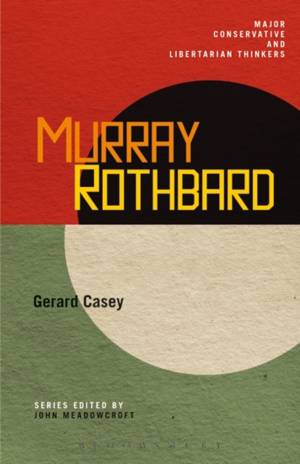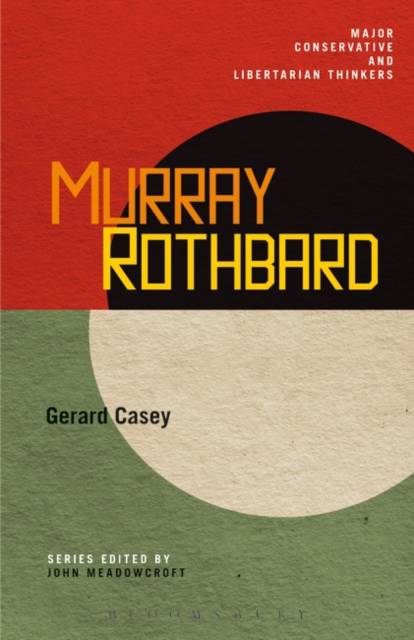
- Retrait gratuit dans votre magasin Club
- 7.000.000 titres dans notre catalogue
- Payer en toute sécurité
- Toujours un magasin près de chez vous
- Retrait gratuit dans votre magasin Club
- 7.000.0000 titres dans notre catalogue
- Payer en toute sécurité
- Toujours un magasin près de chez vous
Description
Murray Rothbard (1926-1995) was an economist, historian, philosopher, and legal theoretician. His work was unified by a passionate and resolute commitment to a libertarianism that may be characterized as 'anarcho-capitalism' and which implied a belief that even the legal system may be provided privately without the need for a coercive collective authority. Hence, anarcho-capitalists envisage a society where the traditional role of government is wholly subsumed by private, profit-making enterprises and all social relationships are ultimately founded upon consent.
Rothbard's unique intellectual contribution was to build this system of thought from many pre-existing but previously disparate strands and to develop it to its logical conclusion. Rothbard's starting points were the notions of methodological individualism, natural rights theory, and individual self-ownership. He showed that if we wish these seriously then the justification for government falls away. According to Rothbard government can only be 'justified' if we abandon the notion that individuals have the right to determine what to do with their own bodies, a step he believed to be unconscionable.
Spécifications
Parties prenantes
- Auteur(s) :
- Editeur:
Contenu
- Nombre de pages :
- 192
- Langue:
- Anglais
- Collection :
Caractéristiques
- EAN:
- 9781441100795
- Date de parution :
- 01-08-13
- Format:
- Livre broché
- Format numérique:
- Trade paperback (VS)
- Dimensions :
- 137 mm x 213 mm
- Poids :
- 249 g

Les avis
Nous publions uniquement les avis qui respectent les conditions requises. Consultez nos conditions pour les avis.






